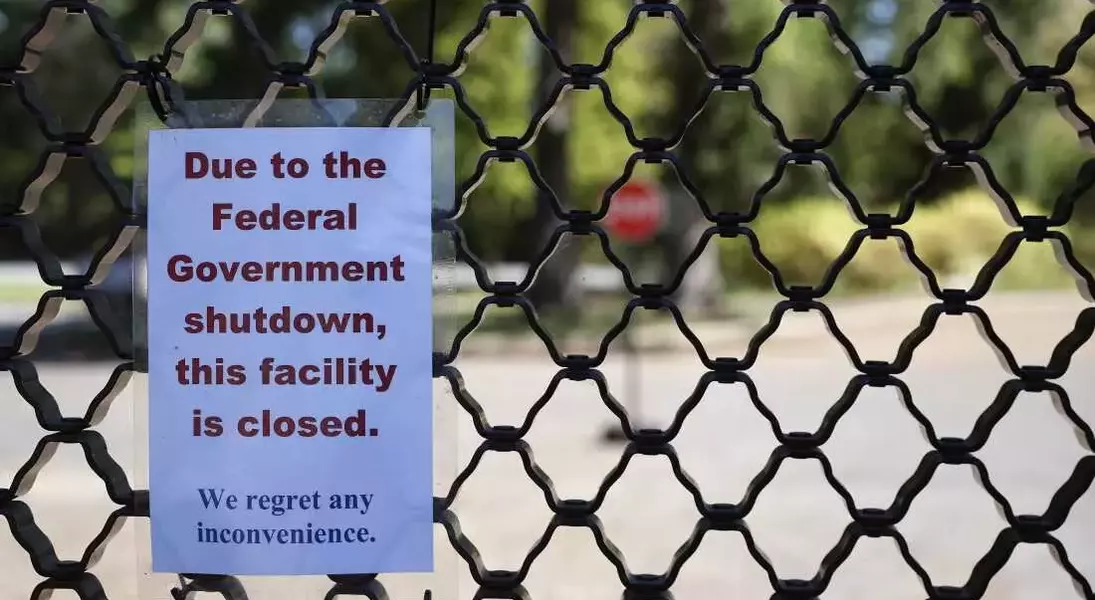
Legislative Standoff: Federal Pay Remains Unresolved Amidst Prolonged Government Shutdown
The Senate's Struggle to Address Federal Worker Compensation During Shutdown
The United States Senate recently faced an inability to progress two distinct legislative proposals, each designed to provide financial relief to at least a segment of the federal workforce during the ongoing government closure. This legislative failure occurred just a day before a significant number of federal employees, exceeding one million, were scheduled to miss their regular earnings.
Republican-Led Initiative: Partial Pay for Essential Personnel
One of the unsuccessful legislative attempts was a measure championed by Republican lawmakers. This bill aimed to ensure that essential federal employees, including military personnel, Transportation Security Administration (TSA) agents, and federal law enforcement officers such as the Capitol Police, would continue to receive their salaries while working without compensation during the shutdown period.
Democratic Counter-Proposal: Comprehensive Pay and Job Security
In contrast, an alternative bill put forth by Democratic senators sought to guarantee payment for all federal employees. Furthermore, this proposal included provisions to prevent extensive layoffs initiated by the Office of Management and Budget under the Trump administration during the shutdown. Senator Chris Van Hollen, a Democrat from Maryland and the bill's proponent, expressed concerns about granting the president unchecked authority to determine which agencies to close and which employees to compensate or penalize.
Executive Action and Judicial Intervention Regarding Federal Workforce Reductions
Earlier in the month, the White House had initiated the dismissal of several thousand federal workers. However, this action was subsequently halted by judicial intervention, underscoring the legal complexities surrounding government employee management during a shutdown.
Differing Views on Executive Power and Workforce Management
Senator Ron Johnson, a Republican from Wisconsin who introduced the GOP's funding measure, articulated a perspective favoring the president's prerogative to effectively manage the federal government. He emphasized the necessity for the chief executive to make difficult decisions, occasionally involving workforce reductions, without legislative constraints.
Legislative Outcomes and Growing Partisan Division
The Republican-backed measure failed to secure the requisite 60 votes for passage, while Democrats successfully blocked their Republican counterparts' bill from even reaching a vote. The distinct naming conventions of these rival proposals—the Republican's "The Shutdown Fairness Act" and the Democrat's "True Shutdown Fairness Act"—serve to highlight the escalating tensions between the two major political parties as the government shutdown continues.
Public and Economic Repercussions of the Prolonged Shutdown
During a recent press conference, House Republicans brought attention to the plight of air traffic controllers, who are currently performing their duties without pay. Transportation Secretary Sean Duffy warned of potential disruptions, stating, "But I can't guarantee you that your flight's going to be on time. I can't guarantee you that your flight's not going to be cancelled." The federal government has now been closed for 23 days, marking it as the second-longest in U.S. history and the most extended full shutdown.
Strategic Pressures and Impending Deadlines for Resolution
Senate Republicans are keen to advance a House-approved bill that would temporarily fund government operations at current levels, while Democrats are advocating for an agreement to extend health insurance subsidies that are soon to expire. Many Republican lawmakers believe that potential travel disruptions during the upcoming Thanksgiving holiday period will create sufficient pressure to sway Democrats. Democrats also face challenges as states begin to announce that funding for the Supplemental Nutrition Program (SNAP), commonly known as food stamps, will soon be depleted. Additionally, Democrats anticipate that surging insurance premiums during the Affordable Care Act marketplace's open enrollment period, commencing on November 1st, will compel Republicans to compromise. Despite 12 Senate votes on the Republican-supported funding bill and a lack of House votes for several weeks, Congressional leaders from both parties acknowledge that they are no closer to finding a path to reopen the government as senators prepare to depart for the weekend.
